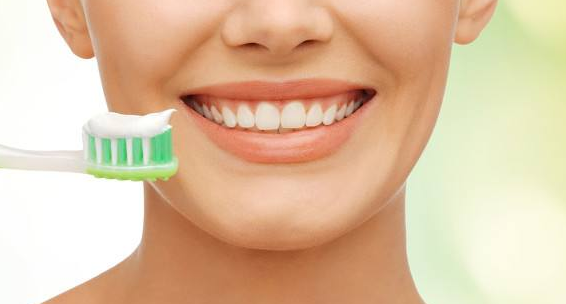
You’re going through your nightly routine, brushing your teeth with the same care you always have. But when you spit into the sink, you see it: a pinkish tinge in the toothpaste foam. A closer look confirms it—your gums are bleeding. It’s not a torrent, just a subtle, worrying sign. You might tell yourself you brushed too hard, but when it becomes a regular occurrence, it’s a signal you can’t afford to ignore.
The easy explanation is gingivitis, a mild form of gum disease caused by plaque buildup. And while that’s often the primary culprit, there’s a deeper story your body might be telling. Bleeding gums during brushing? Your blood is lacking… the essential nutrients it needs to maintain strong, resilient, and healthy tissue.
Think of your gums not just as skin holding your teeth in place, but as a densely packed, highly vascular tissue that is a direct reflection of your overall health. When they bleed easily, it’s often a sign that the microscopic capillaries and the connective tissue within them have become fragile and inflamed. This weakness can be directly linked to nutritional gaps that affect your entire circulatory system.
The Missing Piece: Vitamin C
This is the classic, and often overlooked, connection. Most of us associate Vitamin C with fighting off colds, but its role in the body is far more fundamental. Vitamin C is absolutely essential for producing collagen.
Collagen is the structural protein that acts as the scaffolding for your entire body—it’s in your skin, your bones, your tendons, and your blood vessels. Your gums are incredibly rich in collagen, which gives them their strength and integrity.
When your body is lacking sufficient Vitamin C, this collagen scaffolding begins to break down. The gum tissue becomes weak, spongy, and more susceptible to inflammation from even minor amounts of plaque. The tiny blood vessels within the gums also become fragile and rupture at the slightest pressure from your toothbrush. In its severe form, this is known as scurvy, but even a mild, subclinical deficiency can manifest as bleeding gums long before any other symptoms appear.
Other Key Players: The Support Crew
While Vitamin C is a prime suspect, it doesn’t work alone. Other nutritional deficiencies can contribute to the problem:
- Vitamin K: Known as the “clotting vitamin,” Vitamin K is crucial for the cascade of events that makes your blood coagulate. If you’re deficient, any tiny tear or rupture in the gum tissue will bleed for longer than it should.
- Bioflavonoids: These are compounds found in fruits and vegetables that often work alongside Vitamin C. They strengthen capillaries and reduce inflammation, providing an extra layer of support for your gum tissue.
- Iron: Anemia, or a lack of iron, can sometimes cause gums to become pale and more susceptible to bleeding.
The Inflammation Connection: It’s Not Just About Lack, But Excess
Bleeding gums are a clear sign of inflammation. While a lack of nutrients can cause this, an excess of the wrong things can too. A diet high in sugar and refined carbohydrates feeds the harmful bacteria in your mouth, which in turn excrete acids that irritate and inflame the gums, making them more likely to bleed. So, the problem can be a combination of not getting the good (Vitamin C) and getting too much of the bad (sugar).
Your Action Plan: From Bleeding to Healing
Seeing blood in the sink is a call to action, not a cause for panic.
- See Your Dentist: This is your first step. Rule out significant gum disease (periodontitis) that requires professional cleaning or treatment. Be honest with them about the bleeding.
- Upgrade Your Nutrition, Don’t Just Supplement: Before rushing to buy pills, look at your plate.
- Load Up on Vitamin C-Rich Foods: Citrus fruits are famous, but don’t forget bell peppers (especially red and yellow), broccoli, strawberries, kiwi, and Brussels sprouts.
- Eat Your Greens for Vitamin K: Kale, spinach, Swiss chard, and collard greens are excellent sources.
- Reduce Sugar Intake: This reduces the bacterial load that irritates your gums in the first place.
- Be Consistent, But Gentle: Continue brushing and flossing gently. Stopping will only allow more plaque to build up, worsening the inflammation. The goal is to remove the irritant without damaging the weakened tissue.
- Consider a Supplement, But Talk to Your Doctor: If you struggle to get enough from your diet, a Vitamin C supplement can be helpful. However, it’s always best to discuss this with your doctor first.
Bleeding gums are your body’s way of sending a message from the front lines. It’s telling you that the tissues that form a critical barrier for your health have become compromised. While poor oral hygiene is often to blame, it is powerfully influenced by what you feed your body. By addressing this signal with better nutrition and professional dental care, you’re not just saving your teeth. You’re supporting the strength and resilience of your entire body, from the gums up.